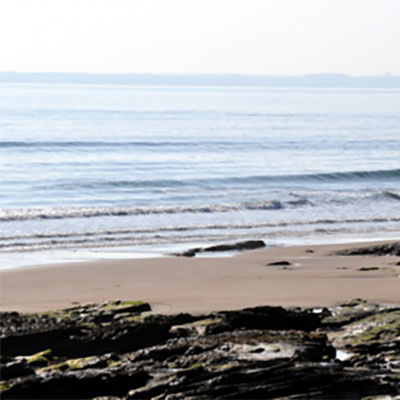Travelling with a newborn baby can be challenging. Aside from the hassle of carrying all their equipment, you need to plan their feeds and nap times around your schedule. And if you have older kids to deal with too, you may find leaving the house to be stressful at times.
(Collaborative Post)
The good news is that you don’t have to sacrifice your annual family holiday. If you and the rest of the family fancy a day or week at the beach, baby can come too.
The important thing is to be well prepared. Whereas you can ‘wing it’ with a toddler or an older child, babies have quite specific needs. They may require a certain brand of baby milk or a particular size of nappy. You can accommodate these things if you head somewhere with shops, but a day on the beach is trickier, as shops won’t be so readily available.
Make a list before you leave the house. Note down everything you would typically use in a normal day and make sure you pack it in the car or your bag. Include an extra change of clothes and some spare nappies. It is better to be well prepared than not have everything you need.
UV Protective Clothing
The main risk to a newborn baby is the sun. A baby’s skin has no natural protection, so they are vulnerable to sun damage. It is sensible to apply lots of sunblock to your baby’s face and body, but UV protective clothing provides an extra layer or protection. There are fabrics that have been developed to filter out harmful UVA and UVB light, so your baby is protected at all times, on the way to the beach and while you take them for a paddle.
A trendy rash guard vest will ensure your baby looks stylish while staying safe in the sun. A boys rash guard from Folpetto comes in several colours and sizes and is perfect for young children.
A Sun Shelter
Babies shouldn’t be out in the sun for long. Therefore, a sun shelter is an excellent accessory for a long day on the beach. It will provide some much-needed shade and give you a safe place to change nappies, feed, and put your newborn down for a nap. Sun shelters are like pop-up tents. They are easy to erect and provide a visible base for the rest of the family to head back to after a dip in the sea. Look for one that is large enough to accommodate your baby’s equipment and beach accessories.
Portable Crib
If you drive to the beach, you can transport your baby in his car seat. If you walk to the beach, he can lie in his pram, but it may be tricky to shift the pram over the sand, so a baby sling could be easier. However, if your baby goes to the beach in a sling, he has nowhere to take a nap when you arrive. Since you may not want to place him on a sandy towel, consider taking a portable crib or bassinet. This provides a safe place for your newborn baby to sleep between feeds and nappy changes. Look for a lightweight Moses’s basket or similar.
These are the main items, but there are zillions of other useful items worth packing in your baby backpack. Hand sanitiser is very useful, as it protects you from nasty bacteria and helps to ensure your hands stay hygienic after changing a smelly nappy. Don’t forget to pack nappy sacks too, as carrying around a dirty nappy when there are no bins is likely to be unpleasant on a hot day.
